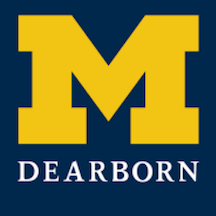 The Center for Social Justice and Inclusion at the University of Michigan-Dearborn recently hosted two concurrent virtual conversations, which were called “cafes.” One was described as for BIPOC (Black, Indigenous, People of Color), another for non-people of color. These virtual cafes were intended to provide members of our campus community with opportunities to reflect on their lived experiences. The use of the word “cafe” caused some people on campus to believe that the university was establishing racially segregated facilities.
The Center for Social Justice and Inclusion at the University of Michigan-Dearborn recently hosted two concurrent virtual conversations, which were called “cafes.” One was described as for BIPOC (Black, Indigenous, People of Color), another for non-people of color. These virtual cafes were intended to provide members of our campus community with opportunities to reflect on their lived experiences. The use of the word “cafe” caused some people on campus to believe that the university was establishing racially segregated facilities.
The university issued a statement explaining that “the ‘cafes’ were virtual open conversations developed to allow students the opportunity to connect to process current events, share their experiences related to race, share knowledge and resources, and brainstorm solutions. The original intent was to provide students from marginalized communities a space that allowed for them to exist freely without having to normalize their lives and experiences, while also providing students that do not identify as persons of color the opportunity to deepen their understanding of race and racism without harming or relying on students of color to educate them. The events were never intended to be exclusive or exclusionary for individuals of a certain race. Both events were open to all members of the UM-Dearborn campus community.”
In an apology statement, Domenico Grasso, chancellor of the university said that “the framing and presentation of the purpose and intended outcomes of these events were poorly conceived and executed. As a result, our community is hurting. Our opportunity to create meaningful and consequential conversation was lost.”

